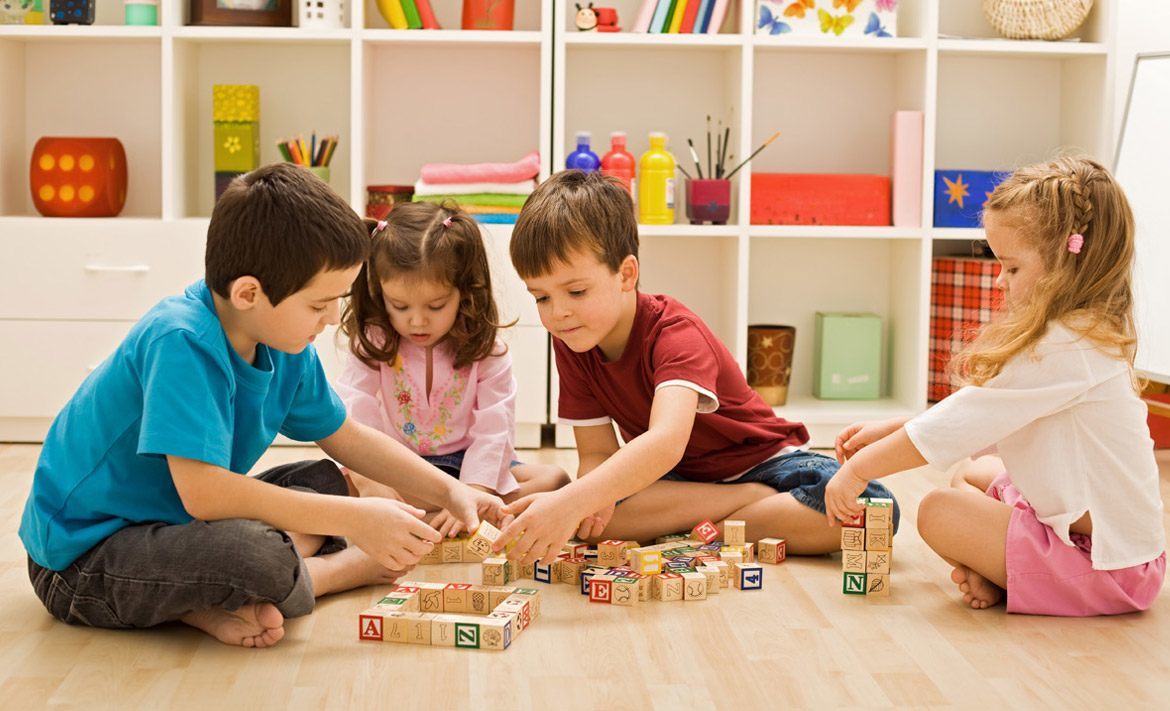Montessori education involves free activity within a prepared environment. It is a method of education that is based on self-directed activity, hands-on learning, and collaborative play. It is an education philosophy and practice that fosters self-motivated growth for children in all areas of their development. It aims to nurture each child’s natural desire for knowledge, understanding, and respect.
In Montessori classrooms, children make creative choices in their learning, while highly trained teachers offer age-appropriate activities to guide the process.
The five principles of the Montessori method are:
- Respect for Students
- The Absorbent Mind
- Sensitive Periods
- The Prepared Environment
- Autoeducation
- Respect for Students
Dr. Maria Montessori began her career as an educator working with children who had learning disabilities and were deemed unteachable. She noted that the needs, interests, and wants of her students were not respected. When she made the students the centre of the learning activities and their inherent curiosity an integral part of their learning process, the success was astonishing.
Montessori Directresses are trained to take their students’ curiosity seriously and foster their independence to help them learn for themselves.
The Absorbent Mind
Dr. Montessori observed that children are ready and eager to learn and that they easily absorb information from the world around them. Her view was that learning takes place all the time. Learning by absorption is indeed both constant and ageless.
Sensitive Periods
This refers to specific times during a child’s development when their capacity for absorbing certain information or mastering specific skills is noticeably increased.
Montessori teachers are trained to observe their students and identify such sensitive periods to provide the students with the right resources and tools to support and accelerate their learning.
The Prepared Environment
A Montessori classroom is an environment designed to promote the students’ freedom of choice. The room is well organized, with plenty of learning materials and the appropriate space in which to use them. Students are encouraged to move around the room on their own, allowing their curious minds to guide them as they explore the tools that the teachers put at their disposal. Such an environment encourages the students to become active and involved participants in their learning journey.
Autoeducation
The first four principles culminate in the realisation that given the right support, children can teach themselves. The environment, authentic freedom of choice, and respect for the students work together to promote a lifelong love of learning.
The Montessori Method recognizes three developmentally important age groups:
- 2 to 2.5 years
- 2.5 to 6 years
- 6 to 12 years
Students learn through activities such as exploration, manipulation, order, repetition, abstraction, and communication. The first two age groups use their senses to explore and manipulate materials in their immediate environment. Children in the last group deal with abstract concepts based on their newly developed powers of reasoning, imagination, and creativity.
The Montessori Method at Pre School and early childhood programs encourage self-directed learning that promotes self-confidence, independent thought and action, as well as critical thinking while fostering social, emotional and intellectual growth.
From the earliest age children are encouraged to find their own motivations for learning and growth through freedom in the prepared environment. The Montessori Method focuses on creating an enjoyable, hands-on collaborative learning experience where the child progresses at his or her own speed.
The materials used offer opportunities for children to learn visually, aurally, kinaesthetically (through touch), and verbally.
Numerous Benefits of the Montessori Method
Develops critical thinking skills
Fosters a love of learning
Encourages problem-solving
Encourages self-motivation
Encourages independence
Instils confidence
Improves social skills
Enhances creativity and imagination
Supports emotional development
Supports language development
Develops fine motor skills
Help your child reach their full potential with the Montessori Method in our child-centred facility where children are at the center of their own learning and can explore, discover, and grow.
Get in touch
Contact us at Natures’ Way Montessori Pre School in Chartwell, Gauteng to book a tour of our school.
- Amy 082 325 7776
- Jess 082 418 7971
In closing, consider this
Montessori alumnus Jeff Bezos, recently commented that his early years in a Montessori nursery school have contributed to his success as an adult. Early training to be self-motivated, questioning what’s going on in the world and just doing things a little differently by not simply conforming to rules and following orders.
Echo’s of Maria Montessori’s philosophy strike frequently in renowned behaviourist Erik Erikson’s theories on psychosocial development about how children learn and the powerful role early childhood development plays later in life.

Good Post